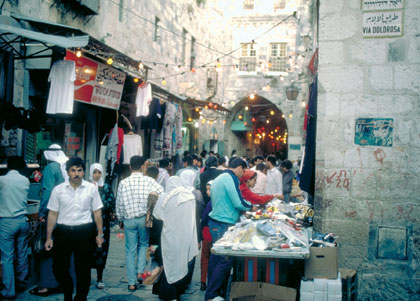
Old City of Jerusalem: Via Dolorosa (Way of the Cross) and the souq (market) in the Muslim Quarter (Photo: Ministry of Tourism)
2.1 million Israelis identify themselves as not Jewish, representing 25% of the population. Their choices of lifestyle vary widely.
Arab Sunni Muslims constitute the largest minority (some 1.5 million), including approximately 300,000 formerly nomadic Bedouins. Two additional Muslim groups are the Circassian community of the Galilee (about 4000 members) and the Ahmedi community in the city of Haifa (about 1000 members).
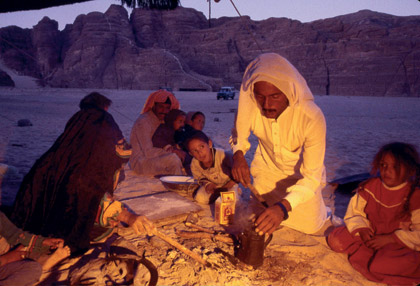
Bedouins in the Arava Wilderness (Photo: Ministry of Tourism)The Christian communities number about 162,000. While the majority of Israeli Christians are Greek Orthodox, Greek Catholic and Roman Catholic, dozens of Christian denominations find representation in Israel, as befits the cradle of Christianity.
Additionally, several lesser-known monotheistic religions flourish in Israel – the Druze faith, with over 130,000 followers living in the north of the country, the Baha’i faith, whose global center is in Haifa, and the ancient communities of Karaites (about 40,000) and Samaritans (about 800), which evolved in parallel with Judaism.
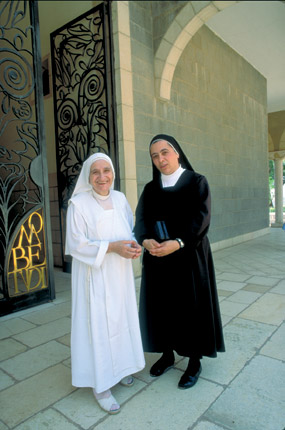
(Photo: Ministry of Tourism)Israel’s minorities, like all Israeli citizens enjoy full equality and liberty.
The minorities also enjoy collective community rights, such as regulating their own rules about marriage and divorce and running the Arab, Druze and Christian school systems. Israel remains committed to ensuring civil and political rights among its diverse population.
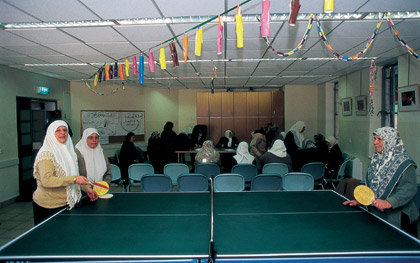 Arab community center (Courtesy of the Jerusalem Foundation / M. Lauber)
Arab community center (Courtesy of the Jerusalem Foundation / M. Lauber) Who are the Druze?
The first followers of the Druze faith settled in areas of modern-day Israel, Lebanon and Syria during the 11th century. Israel’s Druze community, over 130,000 strong, populates 22 villages in the north of the country, maintaining its distinct religious, cultural, and social community life. Among the religion’s core values is complete loyalty by its members to the country in which they reside. As a result, the Druze often attain top positions in the Israeli public service and military.
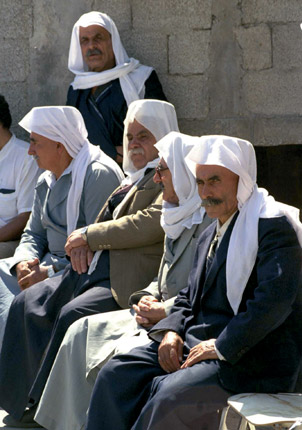
Dרuze elders in the Galilee village of Beit Jann
(Photo: Ministry of Tourism)